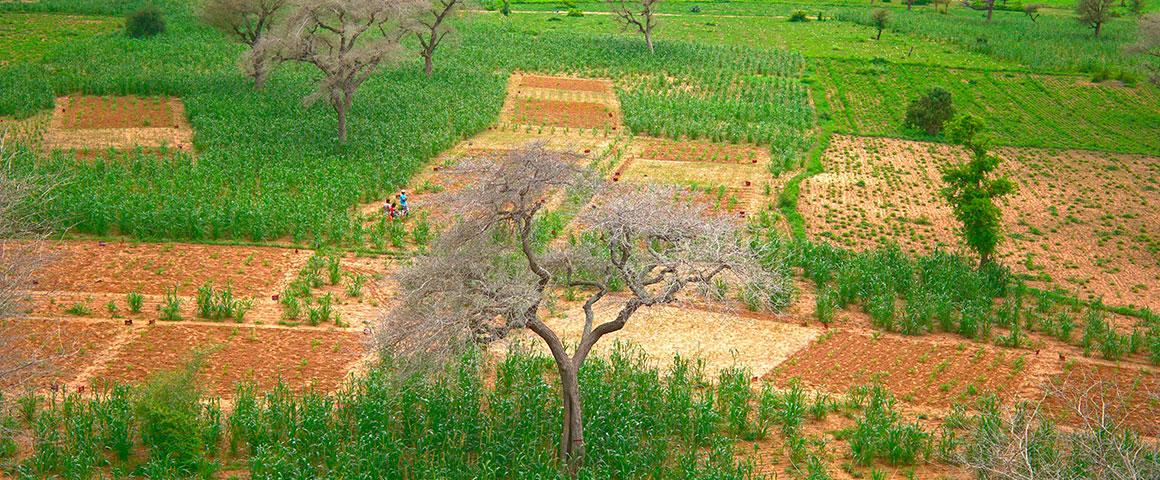- Home
- About us
- Research units
- Functional Ecology and Biogeochemistry of Soils and Agrosystems
Functional Ecology and Biogeochemistry of Soils and Agrosystems - UMR Eco&Sols

Drone view of the "Faidherbia-flux" collaborative observatory representing an agro-silvo-pastoral system based on the Faidherbia albida tree, dominating an annual millet-arachid rotation © A. Audebert, CIRAD
UMR Eco&Sols aims to describe, understand and predict the processes that control primary production and regulate carbon and nutrient fluxes. A functional ecology approach is used to study the role of soil organisms and their interactions within bio-geochemical (C, N, P) cycles in soils and agro-ecosystems; the main processes that determine how the major nutrients are captured, used and recycled; and lastly, the potential of these systems to adapt to climate change and their contribution to mitigating that change. Measurements of C and nutrient fluxes within highly instrumented reference agro-ecosystems in the South, experiments in situ and under controlled conditions as well as modelling approaches are all used to find answers to these questions.























